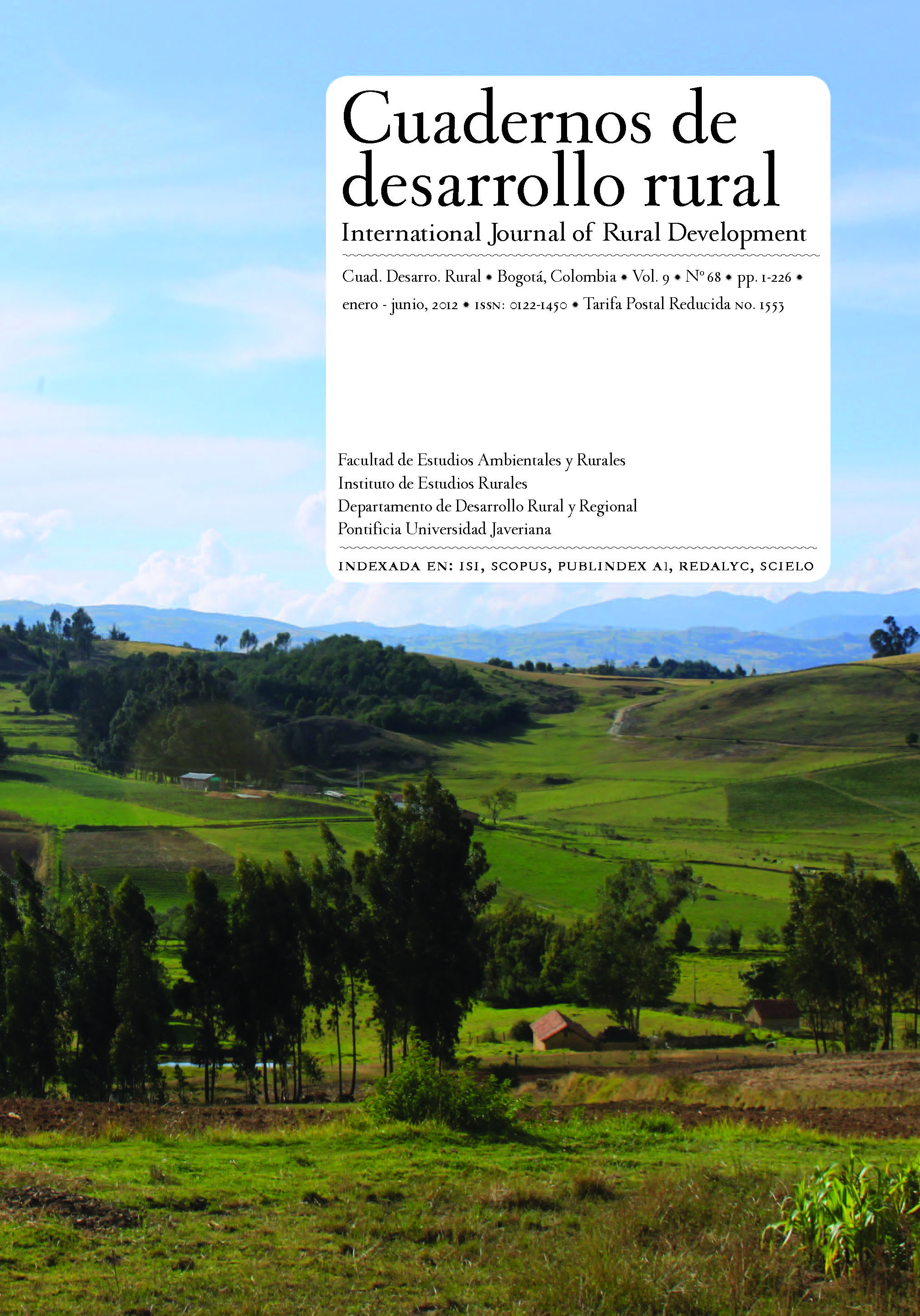Abstract
El objetivo de este artículo es indagar sobre las fronteras sociales y simbólicas de la nueva configuración vitivinícola de Mendoza, Argentina, a partir de la reestructuración y globalización de la misma iniciada en los años noventa. Analizamos las tensiones y asimetrías que el nuevo modelo genera, especialmente desde la óptica de los productores vitícolas, situándonos en la denominada “zona este” de la provincia, la cual se configura como una región subordinada en el escenario actual. Nuestro enfoque metodológico combina elementos de la antropología y la sociología, proponiéndonos, a partir de una extensa investigación de campo cuali-cuantitativa, dar cuenta tanto de las visiones y categorías nativas de los actores, como de las dimensiones estructurales en que los mismos se insertan. Los principales resultados se vinculan a la creciente vulnerabilidad socioproductiva y dificultad competitiva de los pequeños productores vitícolas frente a las nuevas inversiones, y a la identificación de fronteras internas al sector, a partir de lo que denominamos la tensión calidad-cantidad que lo atraviesaCuadernos de Desarrollo Ruralis registered under a Creative Commons Attribution 4.0 International Public License. Thus, this work may be reproduced, distributed, and publicly shared in digital format, as long as the names of the authors and Pontificia Universidad Javeriana are acknowledged. Others are allowed to quote, adapt, transform, auto-archive, republish, and create based on this material, for any purpose (even commercial ones), provided the authorship is duly acknowledged, a link to the original work is provided, and it is specified if changes have been made. Pontificia Universidad Javeriana does not hold the rights of published works and the authors are solely responsible for the contents of their works; they keep the moral, intellectual, privacy, and publicity rights.
Approving the intervention of the work (review, copy-editing, translation, layout) and the following outreach, are granted through an use license and not through an assignment of rights. This means the journal and Pontificia Universidad Javeriana cannot be held responsible for any ethical malpractice by the authors. As a consequence of the protection granted by the use license, the journal is not required to publish recantations or modify information already published, unless the errata stems from the editorial management process. Publishing contents in this journal does not generate royalties for contributors.


